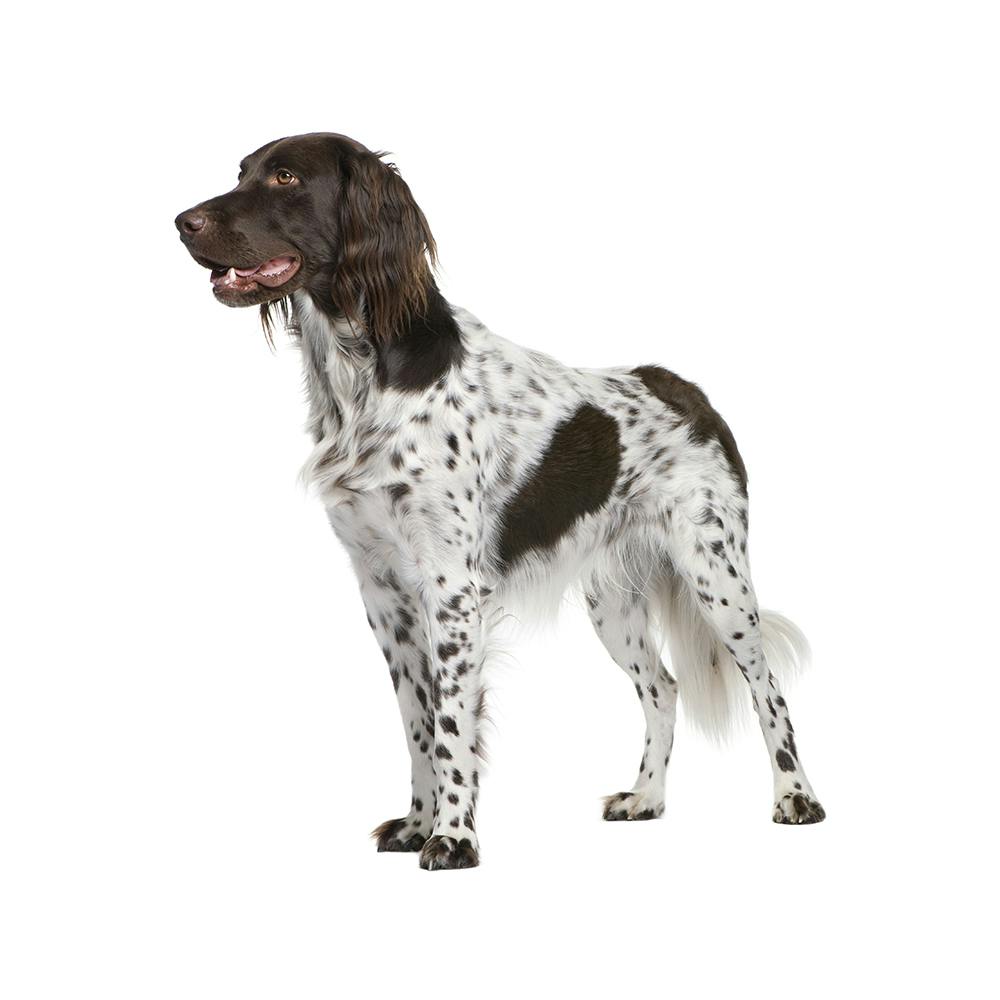
Small Munsterlander
The Small Munsterlander, also known as the Small Munsterlander Pointer or Kleiner Münsterländer, is a versatile hunting dog breed. It originates from the Münster region in Germany and is recognized for its exceptional hunting abilities, distinctive coat, and affectionate nature. The Small Munsterlander's history dates back to the late Middle Ages, when it was used in the Münster region of Germany for falconry, a form of hunting using birds of prey. It's thought that the Small Munsterlander Pointer, a breed skilled in tracking, pointing, and retrieving, was developed to aid in this task, flushing game for the falcons to catch. During the 19th and early 20th centuries, the breed's numbers dwindled due to changes in hunting practices, and it was only in the mid-20th century that the breed experienced a resurgence in popularity thanks to concerted breeding efforts by enthusiasts. The breed was recognized by the Fédération Cynologique Internationale (FCI) in 1955, but it remains less well-known outside of Europe
- Origin
- Germany
- Alternate Names
- Kleine Münsterländer
- Life Expectancy
- 12-14 years
- Average Male Height
- 20.5-21 inches
- Average Female Height
- 20.5-21 inches
- Average Male Weight
- 40-60 pounds
- Average Female Weight
- 40-60 pounds
- Coat Length
- Medium
- Coat Type
- Double
- Coat Colors
- Brown & White, Brown Roan
- Coat Pattern
- Ticked, Patched, Tan Markings
Genetic Predispositions and Health
Small Munsterlanders are generally healthy dogs. However, degenerative myelopathy and progressive rod-cone degeneration are common genetic conditions from which many other dog breeds are known to suffer. As for all breeds, genetic screening is recommended to assist veterinarians with diagnosis and proactive care, as well as help breeders identify affected and carrier dogs.
Personality and Behavior
The Small Munsterlander is known for being intelligent, energetic, and very trainable. This breed thrives on both physical and mental stimulation, and therefore, is well-suited to active families or individuals who enjoy outdoor activities. While they excel in hunting and field work, they're also affectionate and gentle family dogs. Small Munsterlanders are usually good with children and other animals, given proper socialization. Their high intelligence means they can be a little stubborn at times, so firm, consistent training is recommended.
Fun Facts
Despite their name, Small Munsterlanders aren't that small! They typically weigh between 40 and 60 pounds, making them a medium-sized breed.
The breed's name is a bit of a misnomer: the "Munster" in their name is not derived from the large German city of Münster, but from the small town of Munster, located in Lower Saxony, Germany.
Although they're versatile hunters, Small Munsterlanders also have a strong retrieving instinct, making them excellent in water-based activities.
References
https://www.akc.org/dog-breeds/small-munsterlander/
https://vgl.ucdavis.edu/breed/small-munsterlander
https://www.fci.be/en/nomenclature/KLEINER-MUNSTERLANDER-102.html https://www.ukcdogs.com/small-munsterlander